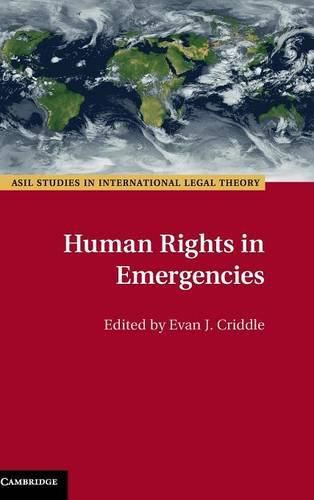Readings Newsletter
Become a Readings Member to make your shopping experience even easier.
Sign in or sign up for free!
You’re not far away from qualifying for FREE standard shipping within Australia
You’ve qualified for FREE standard shipping within Australia
The cart is loading…






Public emergencies such as civil wars, natural disasters, and economic crises test the theoretical and practical commitments of international human rights law. During national crises, international law permits states to suspend many human rights protections in order to safeguard national security. States frequently overstep the limits of this authority, violating even peremptory human rights such as the prohibitions against torture and prolonged arbitrary detention. In this volume, leading scholars from law, philosophy and political science grapple with challenging questions concerning the character, scope, and salience of international human rights, and they explain how the law seeks to protect human rights during emergencies. The contributors also evaluate the law’s successes and failures, and offer new proposals for strengthening respect for human rights.
$9.00 standard shipping within Australia
FREE standard shipping within Australia for orders over $100.00
Express & International shipping calculated at checkout
Public emergencies such as civil wars, natural disasters, and economic crises test the theoretical and practical commitments of international human rights law. During national crises, international law permits states to suspend many human rights protections in order to safeguard national security. States frequently overstep the limits of this authority, violating even peremptory human rights such as the prohibitions against torture and prolonged arbitrary detention. In this volume, leading scholars from law, philosophy and political science grapple with challenging questions concerning the character, scope, and salience of international human rights, and they explain how the law seeks to protect human rights during emergencies. The contributors also evaluate the law’s successes and failures, and offer new proposals for strengthening respect for human rights.